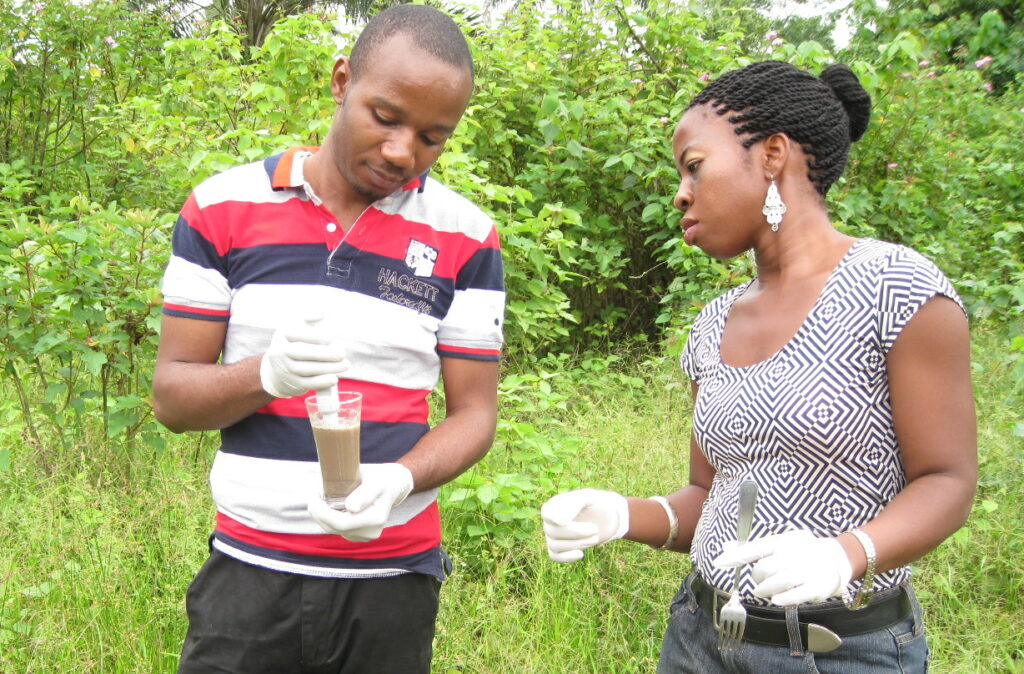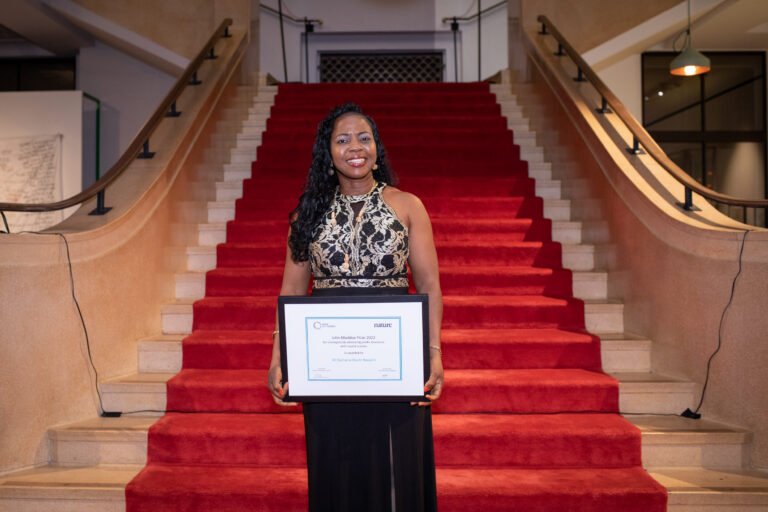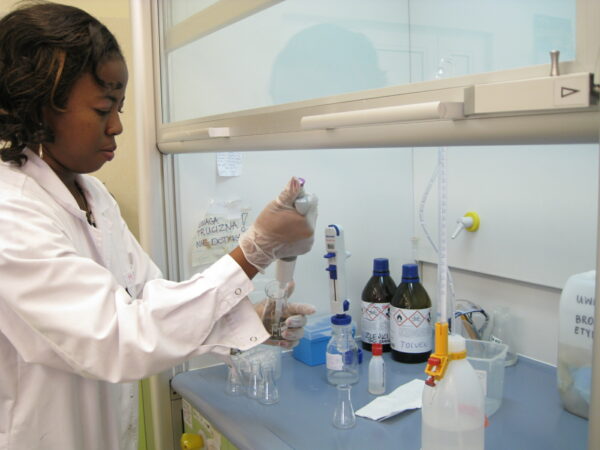Inspired
This Biochemist is Using Science to Solve Conflict & Detoxify the Environment in the Niger Delta

Dr. Eucharia Nwaichi (R)
Niger Delta, located in the South of Nigeria, is one of Africa’s largest oil producing region, but it faces a lot of challenges, summed up into conflict between host communities and oil companies.
Crude oil exploration and extraction activities causing contamination on land and in water result in protests in host communities about negligence by oil companies and even the government. Pipelines are blown up, kidnapping is rife, but one woman is rising to the challenge – to fix the big issue – the dangerous effects of crude oil exploration and extraction in communities with science.
Dr. Eucharia Nwaichi, a biochemist at the University of Port Harcourt, is on a simple mission – to detoxify lands. Through bioremediation – planting of vegetation that naturally removes pollutants from the soil – Eucharia is solving this big problem, one community at a time.
She has just won the John Maddox Prize, a joint initiative of the charity Sense about Science and scientific journal Nature, which has been awarded annually since 2012 to individuals who have shown courage and integrity in standing up for sound science and evidence.

Dr. Eucharia Nwaichi and her John Maddox Prize
“Receiving the John Maddox Prize from such reputable institutions is a huge honour, with a resonating feeling that is hard to put into words. When my husband received the great news, he said ‘the ‘uninformed bully and chauvinists who failed to recognise your work for society have unintentionally referred you to the right people’. Scientists like me are emboldened by this singular award to confront obstacles and ensure credible evidence is used to inform policies for sustainable development,” Eucharia said.
For almost two decades, Eucharia has been working in the Niger Delta, conducting research, and using since to solve violent disputes in the region. “We want solutions that are green and based on nature. We aim to do no harm in everything we do,” she told BBC in an interview.
During her PhD study, Eucharia discovered how waste from oil exploration and extraction activities is choking water, causing conflict between the oil company and the community. Through evidence, she persuaded the company to change how its activities are carried out, diffusing a conflict that could potentially have turned violent.

“If you don’t engage with people properly, you run the risk of being kidnapped. First I meet the community chief, the women’s leader, the youth leaders,” Eucharia said in the interview with BBC.
According to Sense about Science, Eucharia continues to work with local communities to trial new methods for soil remediation despite the intense personal threat to her from representatives of a different oil companies…. She and her team are currently working on formulating slow-release nutrients to counter soil exhaustion.”
For Eucharia, working with the host communities is paramount. When she involves them in the process right from the beginning, “people get excited and feel like scientists, because they’re working with us researchers to fix the problem,” she said. “We also learn from them. They have planting techniques that we don’t know – they teach us how to make the solution work in their area.”
She believes that host communities should not just focus on financial compensation, but land an water restoration so crops can grow again and aqua life continues to thrive, making fishing possible.
Photo via: Sense about Science






















